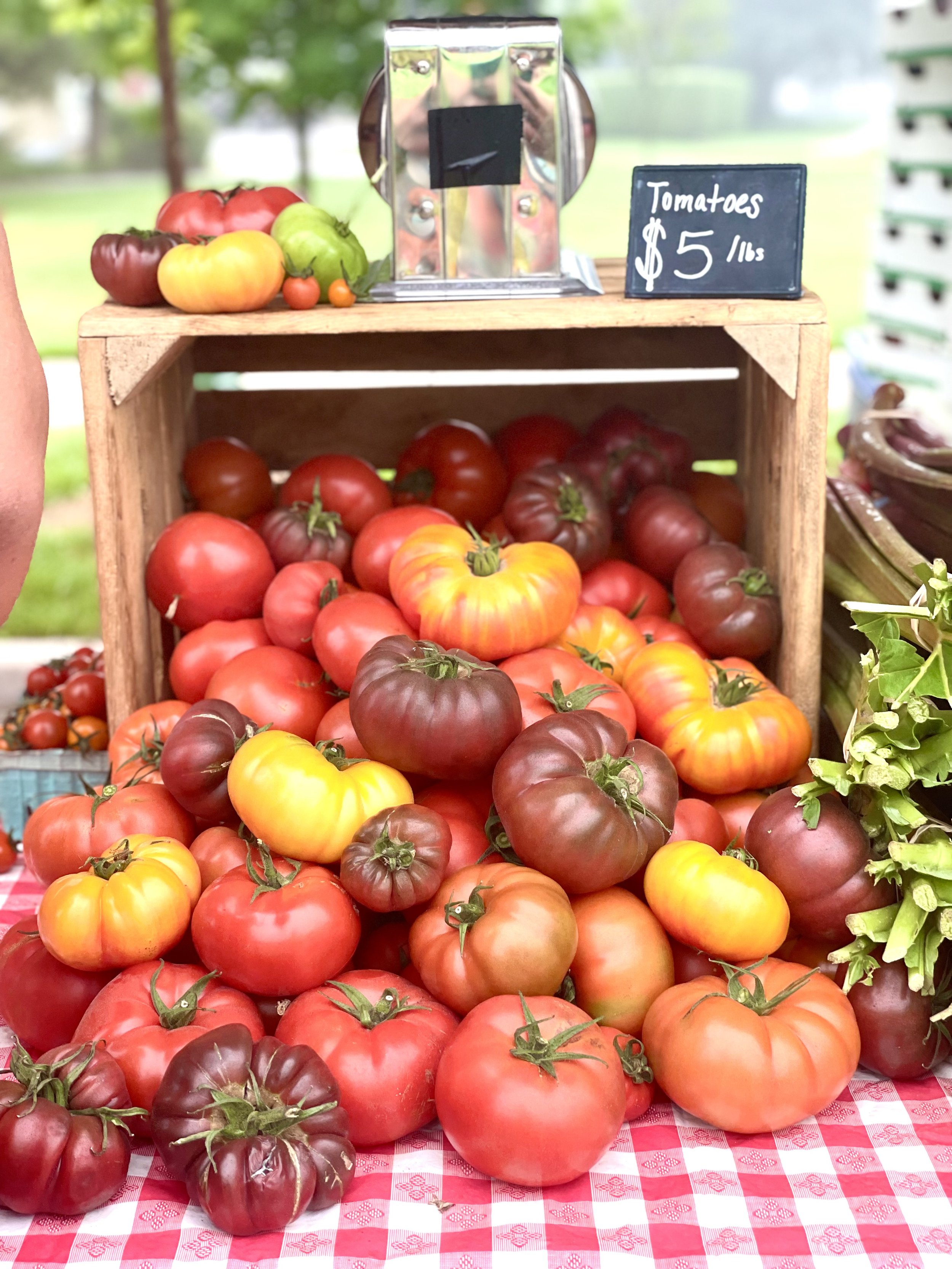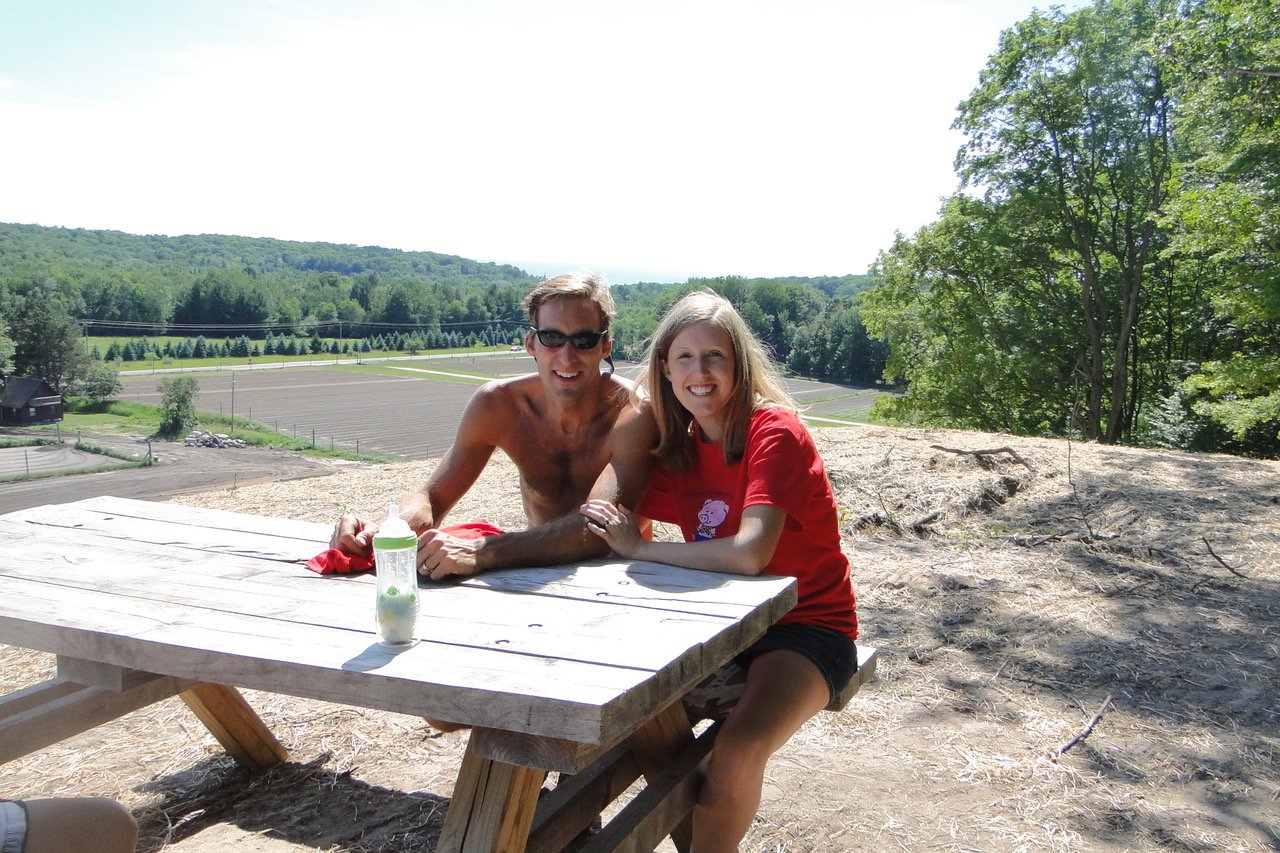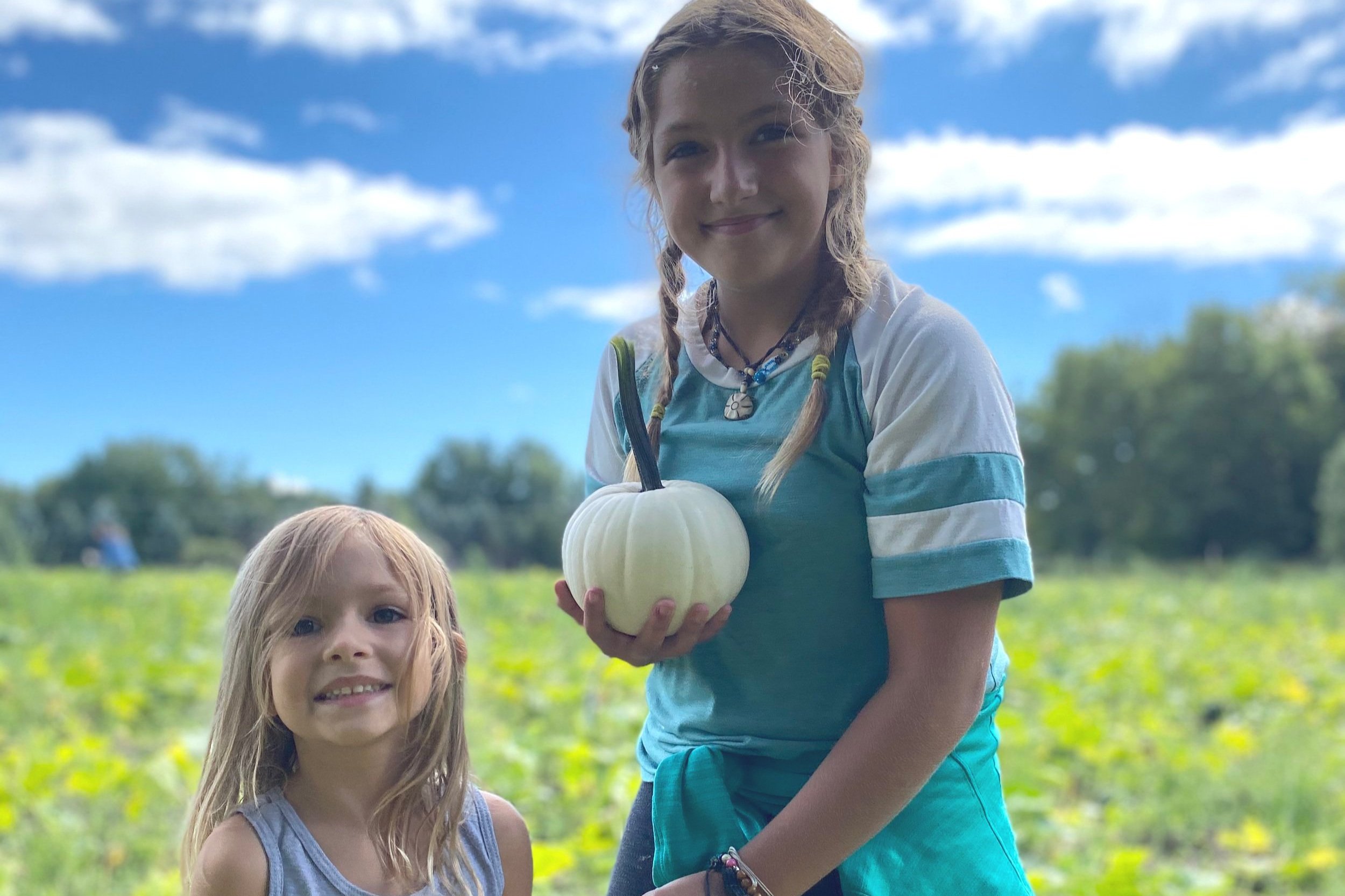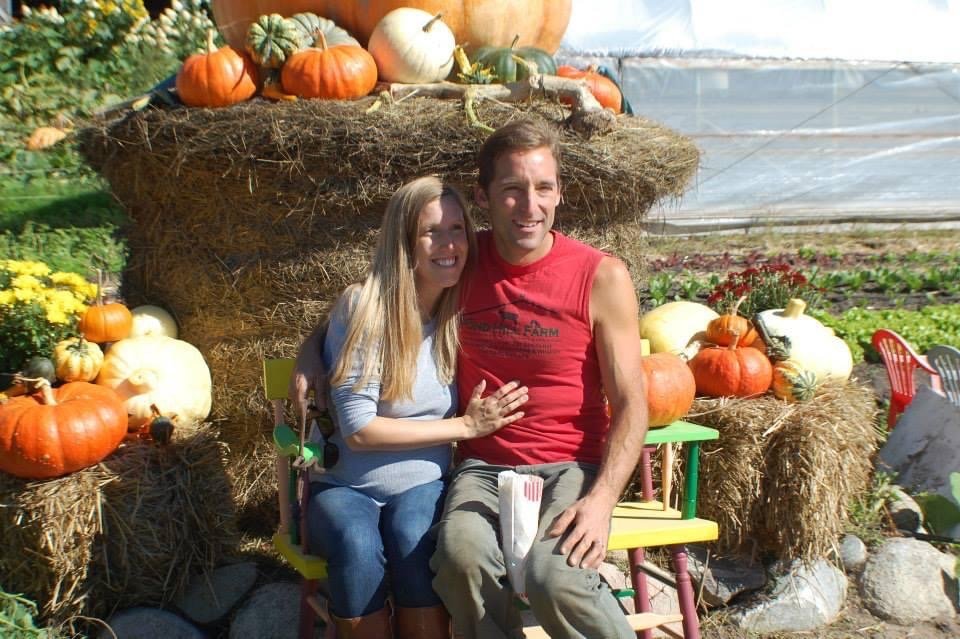
From Roadside Stand to Today The History of Pond Hill Farm

Farm overview 1996

The Spencer family working the fields

Building the market in 1996

JJ working the fields

The History of Pond Hill Farm
Jimmy Spencer's journey in agriculture began during his mid-teens when he would assist his financial adviser father on the computer every Saturday. However, Jimmy realized early on that he didn't want to be confined to a desk; instead, he yearned for the outdoors, immersing himself in activities like hunting, fishing, and playing in the dirt. At the age of 17, with the unwavering support of his dad, Jim, Jimmy took a leap of faith and embraced farming on their 173-acre property in Harbor Springs, a renowned tourist destination in northwest Lower Michigan.
Their initial venture into gardening involved plowing a 10-acre hayfield and attempting to cultivate vegetables. Facing challenges where the weeds often outgrew their crops, Jimmy faced a pivotal decision: to give up or persevere. Fueled by his growing passion for farming, Jimmy chose the latter and dedicated himself to gradual evolution over the following years. While pursuing his studies at Albion College, Jimmy spent his summers working on the farm, selling produce at the end of their driveway through an honest box. After a year, he transferred to Michigan State University, where he delved deeper into the realm of agriculture and horticulture.
As Jimmy's farming skills improved, the question of what to do with their abundant produce arose. In an era before farmers' markets gained popularity and the concept of "local" was not yet a buzzword, Jimmy's mother, Sharon, started canning the surplus as a solution. However, their roadside stand faced scrutiny from the county due to traffic concerns, leading them to conceive the idea of building a farm market on their property. Collaboratively, Jim, Sharon, and Jimmy constructed a farm market adjacent to the existing dairy barn, gradually transforming their farm into a small general store.
Word spread about their farm, attracting visitors who brought their children, grandchildren, and guests to enjoy animal feeding, berry picking, and wagon or hayrides. Recognizing the demand for more than just entertainment, visitors often sought recommendations for places offering lunch. Meanwhile, chefs began reaching out to the farm to source local produce, but logistical challenges involving the supply chain, packaging, deliveries, and invoicing made it difficult to meet the increased demand.
In 2007, the farm took a significant step forward by introducing their first lunch item—a $6 grilled cheese prepared on a panini machine. Encouraged by the need to expand their culinary offerings and showcase their skills, they soon introduced ticketed, five-course, farm-to-table dinners. And what goes better with a fancy dinner than wine? In the same year, Jimmy's aspirations led him to clear the trees on the hill in front of the market to make way for a vineyard, which caught the attention of a customer-turned-partner, Jim Palmer. His enthusiasm and financial support accelerated their 10-year plan, culminating in the establishment of Sunset Hill Vineyard three years later, where 2,500 vines were planted in 2011. As time passed, the farm also diversified its offerings by planting hops and brewing beer. While some hops were sourced from the farm itself, the majority came from local Michigan growers, aligning with their commitment to utilizing local ingredients. Their beverage selection expanded to include 16 wines, 12 beers, and four hard ciders.
In 2020, the farm welcomed a new addition—a pizza oven. This prompted them to extend their daily hours from 11 a.m. to 6 p.m., reserving Fridays and Saturdays for pizza days until 9 p.m. The Spencer family continues to nurture their farm, providing a wholesome experience for visitors while embracing the principles of sustainability, local sourcing, and culinary creativity.
The Farmer’s Wife
Fifteen years ago, Marci Petzinger ventured from the scorching Arizona heat to Michigan in search of a job. It was then that farmer Jimmy hired her for farmers markets and farm education programs, impressed by her arrival with fishing poles strapped to her car. A summer of work and friendship blossomed, leading to a courtship and marriage the following fall. Today, they have four children - Emma, JJ (Jimmy Jr.), Lily, and Sawyer - all actively involved in the farm.
Located just 5 miles north of downtown Harbor Springs on the scenic Tunnel of Trees, Pond Hill Farm Vineyards and Winery is Jimmy's domain, where he oversees and participates in every aspect. Meanwhile, Marci has taken on a marketing role, utilizing her background in graphic design to develop a logo, website, and manage social media. Her creative vision extended beyond marketing, as she played a vital role in establishing the farm's cafe, winery, brewery, playground, volleyball court, and other attractions. With a focus on making Pond Hill Farm kid- and dog-friendly, Marci's aim was to inspire children to embrace the outdoors through engaging activities. Thus, the idea of hidden gnome houses along a 1.5-mile trail emerged. Children collect letters from each gnome house to decipher a code word, offering them a chance to redeem it for a special prize at the market.
As families venture along the trail through the enchanting woods and farm, they encounter various gnome houses, each with its own unique story and environment. The moss-filled woods and babbling streams provide a magical setting for these collector gnomes, who gather treasures from the property. Parents can even enjoy a beverage during the hike, as drinks are allowed on the trail.

Jimmy & Lily harvesting zucchini

Sawyer in the pumpkin patch

Jimmy & Marci sitting up on the early Sunset Vineyard Hill Overlook 2009

Jimmy & JJ planting the very first vines in 2010

Emma and Sawyer harvesting pumpkins

Lily & Jimmy fishing in the Trout Pond

Farm overview 2021

Jimmy & Emma in the field 2009
Real Farm Life in Harbor Springs, MI
The Pond Hill Farm, which has grown to 238 acres, has a rustic, real and intentional, on-farm vibe. An on-site saw mill provides wood for the countertops throughout the facility and slabs customers can purchase. “We wanted to use pieces from our land in the building,” Marci says.
The farm has goats, pigs, chickens and bunnies, too. “That’s been dramatically downsized since I first came to the farm,” Marci says, noting there used to be upward of 40 cows, and a whole herd of sheep, pigs and chickens. “The whole process was not financially viable, so now the animals live here for our guests to enjoy,” she adds. People particularly like their chicken wagon, a mobile chicken house that allows chickens to forage on new ground as the wagon and fencing are moved to new areas of the farm as cleanup after harvest. The farm hosts many educational fields trips. “We are teaching kids about where their food comes from, parts of the plant they eat, and making good choices in what they eat,” she adds.
There are four hoophouses on the farm with three heated. “We’re growing things year-round like kale and spinach in the winter, and in the summer, we’re doing everything from tomatoes and broccoli to cucumbers and peppers — it’s really the whole gamut,” Marci says. In the fall, the farm hosts its very popular fall festivals on the weekends, including music, bonfires, squash and pumpkins. They can draw up to 1,000 people a day. “Our giant pumpkins are a hit,” Marci says. “My husband is obsessed with growing giant pumpkins. It’s his favorite thing. … Well, it’s more like pumpkins, fish and beer.” The farm was named after the pond Jimmy’s dad dug on the property when he was a youngster. It’s used for irrigation, but also has schools of fish — rather large trout.
By Jennifer Kiel, FarmProgress.com


